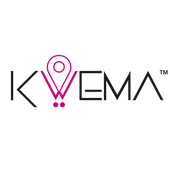Since the beginning of the pandemic, we have seen how fast COVID-19 has spread and evolved around the world, and one of the biggest challenges of this pandemic has been to adapt our lifestyle to protect our health and safety.
When it comes to the workplace, different organizations have created a lot of strategies, and recommendations for employers responding to COVID-19 issues at work. However, these guidelines may turn into legal requirements soon.
For instance, California has played an important role in promoting initiatives to protect employees from COVID-19 exposure in the workplace. In May, the governor signed an executive order that extends the workers’ compensation policies for all essential employees, which can include medical treatment, disability indemnity, death benefits and more.
Last month, California's government gave the green light to a new workplace legislation which will go into effect next January 1st. This law will require most private and public employers to have a set of obligations to report potential exposure based on a confirmed positive case of COVID-19 at the workplace.
We summarized the main content of this new regulation that employers should know about:
- Employers will have to provide a written notification to all who were at the worksite within the infectious period who may have been exposed to COVID-19, including employees, employers of subcontracted employees and even third parties must be considered.
- Employee representatives such as unions and attorneys will also have to be notified, and they must be informed regarding all worker’s compensation benefits for COVID-19 that employees may receive under federal, state or local laws.
- Employers will have to communicate to all employees the company’s disinfection and safety plans in order to prevent further exposure, following the CDC guidelines.
Other requirements that employers must consider in case of risk exposure of COVID-19 at the workplace are:
- The written notification can be sent through email, text message, personal service and it must be provided both in English and in the language understood by the majority of employees.
- This notification process also applies to employers who experience a COVID-19 “outbreak” (as defined by state). The local public health agency must be notified within 48 hours.
- In the case of COVID-19 related fatalities, employers will have to provide a notification to the local department as well. Names, numbers, occupations and the worksite where the worker passed away are some personal data that must be provided.
- It is probable that this law will require employers to create a COVID-19 action plan in order to identify risk sources of exposure in the workplace and determine which measures and controls will be implemented to minimize risk.
In addition to this, California has joined other state measures such as in Virginia and Oregon which consist in creating temporary rules specifically for protecting employees from COVID-19 based on the risk of exposure to the virus according to the nature of the job.
Do you believe other states will follow the same path to extend worker protection? No matter how quickly these legal adjustments take place across the US, we think that it will be necessary for companies to be prepared to face potential COVID-19 exposure risks at work.
Kwema helps companies build safer workplaces by providing safety wearables that can prevent potential COVID-19 outbreaks with Contact Tracing functionality. When someone is diagnosed positive for COVID-19, our technology allows you to trace where the employee was, identify who they may have come into contact with and classify all employees into 3 groups of risk and take action to prevent spread without requiring behavior change from your employees.
